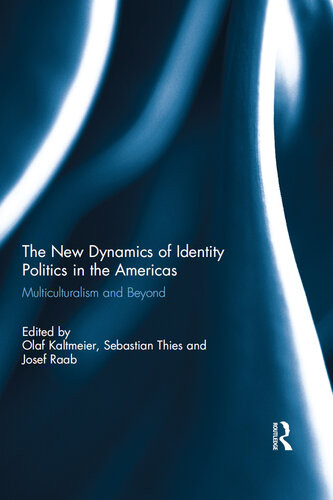

Most ebook files are in PDF format, so you can easily read them using various software such as Foxit Reader or directly on the Google Chrome browser.
Some ebook files are released by publishers in other formats such as .awz, .mobi, .epub, .fb2, etc. You may need to install specific software to read these formats on mobile/PC, such as Calibre.
Please read the tutorial at this link: https://ebookbell.com/faq
We offer FREE conversion to the popular formats you request; however, this may take some time. Therefore, right after payment, please email us, and we will try to provide the service as quickly as possible.
For some exceptional file formats or broken links (if any), please refrain from opening any disputes. Instead, email us first, and we will try to assist within a maximum of 6 hours.
EbookBell Team

4.1
90 reviewsMulticulturalism has shaped identity politics in the Americas over the past decades, as illustrated by politics of recognition, affirmative action, and increasing numbers of internationally recognized cultural productions by members of ethnic minorities. Hinting at postcolonial legacies in political rhetoric and practice multiculturalism has also served as a driving force behind social movements in the Americas. Nevertheless, in current academic discussions and public debates on migration, globalization and identity politics, concepts like new ethnicities, ethnic groupism, creolization, hybridity, mestizaje, diasporas, and "post-ethnicity" articulate positionings that are profoundly changing our understanding of "multiculturalism." Combining theoretical reflections with case studies the aim of this book is to demonstrate the current dynamics of (post-) multicultural politics in the Americas.
This book was based on a special issue of Latin American and Caribbean Ethnic Studies.